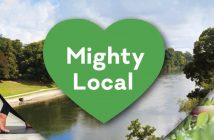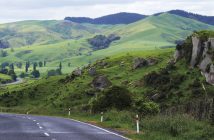Te Waka celebrated its one-year anniversary at an event on September 27 alongside nearly 300 business and community leaders.
Having taken a look back at this past year, I’m pleased with what the organisation has accomplished in such a short time.
We have distributed $500,000 of capability funding from New Zealand Trade and Enterprise, and facilitated $5.6m of research and development funding from Callaghan Innovation to businesses in the region. A further $25m of research and development funded projects are in the pipeline to be considered.
Since our establishment, 11 large business organisations have partnered with Te Waka to support the growth of the mighty Waikato. Four of these businesses were announced at our one-year anniversary event. These partnerships are a critical linkage to the business community and allow us to accomplish more delivery on the ground.
By June, the Government’s Provincial Growth Fund confirmed funding of $3.3m for business in the Waikato, with another $90m in funding applications still being considered.
Deloitte and PwC have partnered on the Provincial Growth Fund pipeline for projects and, with our important relationship with government, are currently progressing eight priority projects to investment-ready status. In effect, it’s about leveraging government funding with private sector capability to boost Waikato’s economy through targeted support.
We have also worked with organisations, councils and iwi across the region to implement sizeable projects that will provide significant impacts for the region.
Businesses in other regions, such as Auckland and overseas, are starting to look to the Waikato to expand their operations and upscale. Waikato is a prime location for that because we have the land, transport linkages and capacity, and it also means there’s employment potential should big businesses move here. This all ties in with our strategic vision of enhancing business in the region.
Further to that, six major business relocation and establishment projects have come to Te Waka in the last six weeks. We are working alongside councils, New Zealand Trade and Enterprise and other organisations to streamline these businesses to become operational.
In the same vein, Te Waka has placed significant focus on enhancing Māori business during this past year.
We have partnered with iwi and Te Puni Kōkiri to implement the 2018 Māori Economic Action Plan and Agenda, which was refreshed in June.
We’re also working on three extensive opportunities in the authentic cultural tourism space. The purpose is to leverage the river and our cultural heritage, both of which are unique assets to us. And with tourism having the potential to generate $1.4bn in exports for the region, according to Deloitte’s Shaping our slice of heaven report, it makes sense to further invest in this industry.
Another key priority for Te Waka is to help fill the region’s workplace shortage, and develop ways to better the transition of employees into jobs.
As I’ve mentioned in a previous column, we’ve seen a slight decrease in the number of people employed in the Waikato, and that’s due to the decrease in the percentage of people ready and available to work.
With those figures in mind, we helped to develop and launch the Waikato Labour Market Strategy in April, under the guidance of the Waikato Labour Market Leadership Group.
Through this strategy, employers can access the tools and understanding required to support trade apprentices, young and migrant workers, and interns.
As more is placed on Te Waka’s agenda for the near future, I’m confident we can meet increasing demands, particularly with new people coming on board.
A few months ago we welcomed Michelle Hollands to the team, who has taken the role of strategic partnerships and projects manager.
More recently, Hamish Bell was appointed as a new director to the board. Hamish has a wealth of experience, having held directorship roles with Greenstone Group, East Care and Sutherland Produce. He currently holds directorship roles with Ritchies Transport Holdings and Millennium Corp, so his knowledge of corporate governance and strategic thinking will be a huge asset.
Board members Chris Joblin and Les Roa have also been reappointed after reapplying for their positions in the last board rotation, which took place during August.
With 2019 coming to a close, Te Waka will continue to build momentum heading into next year, with a focus on the Hamilton to Auckland corridor, core regional infrastructure, the development of housing across the region, development of the Southern Waikato Economic Action Plan, authentic cultural tourism and regional investment.





